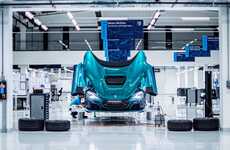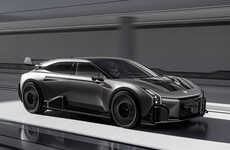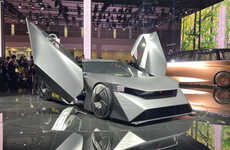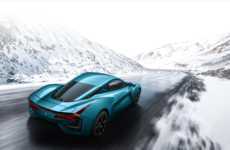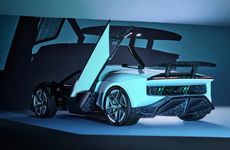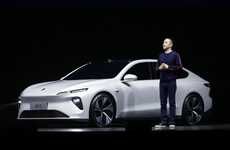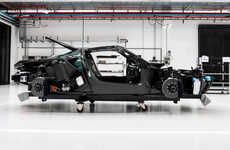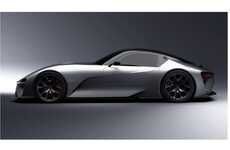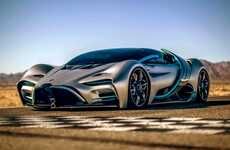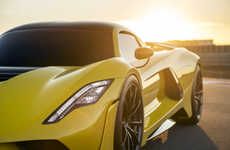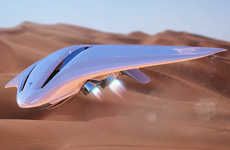
The Rimac Concept Two is Taking on Tesla with Pure Performance
Justin Lam — March 7, 2018 — Autos
The Rimac Concept Two is a new electric hypercar with outrageous performance and a stunning design. The Concept Two is a 1,914 horsepower vehicle and can accelerate to 258 mph in just 1.85 seconds. These figures may seem ludicrous, but the performance of this vehicle has been carefully calculated to outdo the upcoming generation of Tesla's Roadster, which is set to hit 60 mph in 1.9 seconds and top out at 250 mph. The Rimac Concept Two will also feature eight cameras, a lidar, six radars and 12 ultrasonic sensors, all of which will help the vehicle achieve Level 4 self-driving capability.
The body of the Rimac Concept Two features full carbon fiber construction and design elements that cut a dramatic figure. The use of carbon fiber lightens the entire load of the vehicle, though it still tops the scales at 4,300 pounds. This is makes the Concept Two a heavy hypercar, but the handling is not affected thanks to torque-steering that's fully independent on each wheel.
The body of the Rimac Concept Two features full carbon fiber construction and design elements that cut a dramatic figure. The use of carbon fiber lightens the entire load of the vehicle, though it still tops the scales at 4,300 pounds. This is makes the Concept Two a heavy hypercar, but the handling is not affected thanks to torque-steering that's fully independent on each wheel.
Trend Themes
1. Electric Hypercars - The development of electric-powered hypercars presents opportunities in the automotive industry to push the limits of performance and efficiency.
2. Autonomous Vehicle Sensor Technology - The integration of next-gen sensor technology into hypercars that enable Level 4 self-driving capability has potential to disrupt the automotive industry and pave the way for autonomous driving.
3. Carbon Fiber Construction - Carbon fiber construction in hypercars has the potential to disrupt the traditional manufacturing process and reduce the weight of vehicles to increase speed and performance.
Industry Implications
1. Automotive - The automotive industry has an opportunity to disrupt the high-performance car market with the development of electric hypercars.
2. Technology - Advancements in sensor technology for autonomous driving have disruptive potential not only for the automotive industry but for the technology industry at large.
3. Manufacturing - The use of carbon fiber construction presents potential disruption in manufacturing processes for various industries beyond automotive, including aerospace and sporting goods.
3
Score
Popularity
Activity
Freshness


